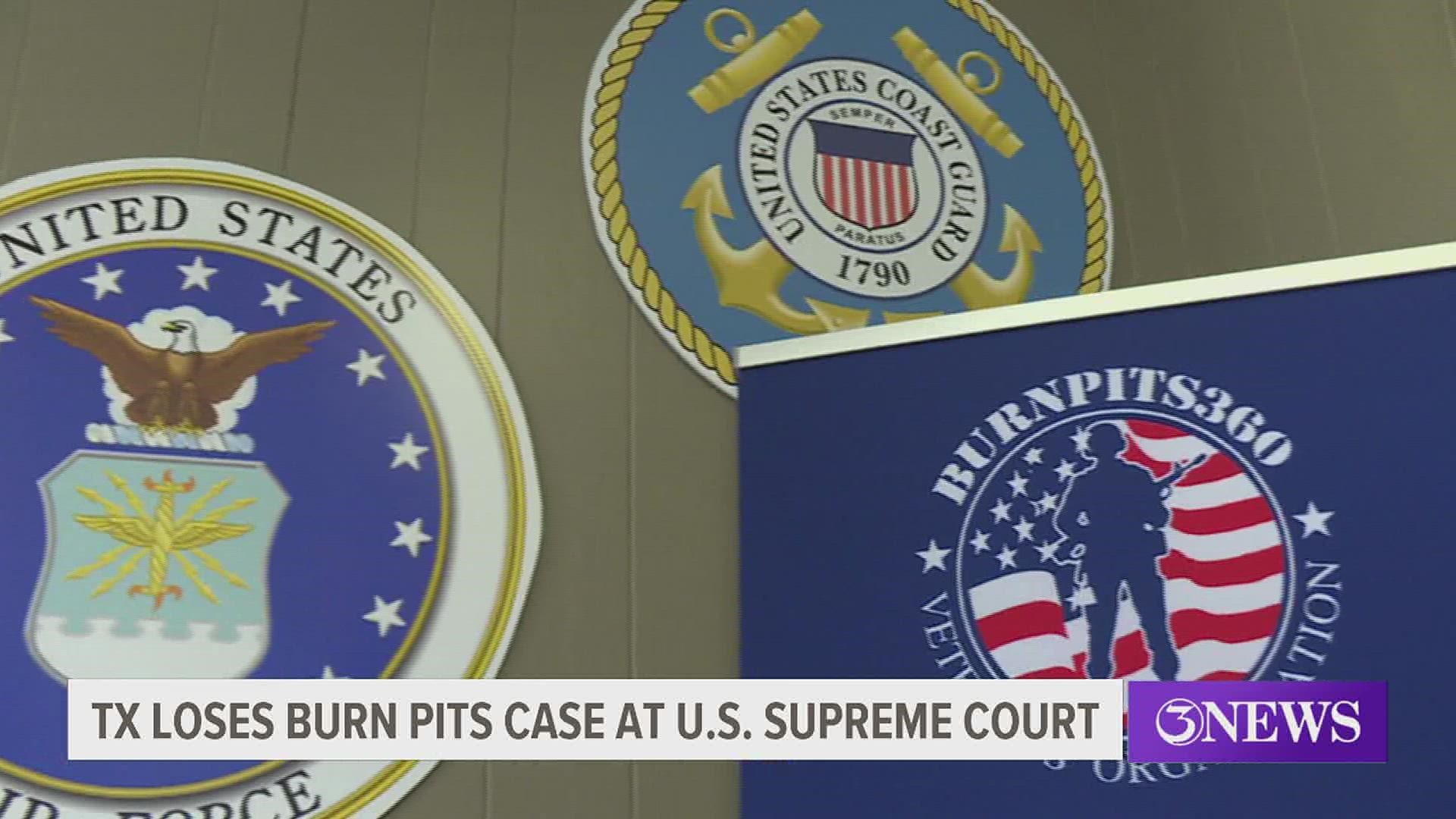ROBSTOWN, Texas — The Supreme Court on Wednesday allowed a former state trooper to sue Texas over his claim that he was forced out of his job when he returned from Army service in Iraq.
"I can't even, like trying to put my words together. It was just so much excitement as to the journey that I've had here," Le Roy Torres said.
Torres, Robstown resident and founder of Burn Pits 360, said he was injured by daily exposure to toxic fumes from a burn pit during his time in Iraq. Burn Pits are landfills where the U.S. Government was known to have burned different types of toxic waste.
Torres returned back to work as a state trooper in 2008, following his deployment, and said that is when his symptoms started to show. He claims he was pressured to resign.
"Came back with a mysterious illnesses at the time, burn pit exposure was not recognized, it was something kept quiet," Torres previously told 3NEWS. "In 2010 I was diagnosed with a lung injury."
The lawsuit asked for lost wages and retirement pay, but the Texas Supreme declined to hear his case.
That's when he took his case to the Supreme Court, who issued an opinion in his favor on June 29, 2022.
"Those that are facing the same challenges in other states, now they can move forward with their cases as well. That definitely brings a sense of closure and peace to my heart knowing that this is much bigger than me," Torres said.
The justices ruled for Torres under a federal law that was enacted in 1994 in the wake of the Persian Gulf war to strengthen job protections for returning service members.
By a 5-4 vote, the high court rejected Texas' claim that it is shielded from such lawsuits. “Text, history, and precedent show that the States, in coming together to form a Union, agreed to sacrifice their sovereign immunity for the good of the common defense,” Justice Stephen Breyer wrote for the court.
Justice Clarence Thomas, joined by three other conservative justices, dissented, arguing that “when the States ratified the Constitution, they did not implicitly consent to private damages actions filed in their own courts—whether authorized by Congress’ war powers or any other Article I power.” Article I refers to the part of the Constitution that spells out Congress' power.
Torres will now have to argue the merits of the case to the state.
Torres said the verdict is a win for many as the court's decision could impact thousands of other veterans who are employed by the state.
"I know I'm not alone in this situation. There are many service members that have returned from two decades of war who have been exposed to this invisible enemy," Torres said.
More from 3News on KIIITV.com:
- Nueces County has 7 of top 10 worst beaches for bacteria in Texas, report says
- Aransas Pass man dies from injuries after chasing off home intruder
- KIII joins media coalition seeking greater transparency from Uvalde city officials
- Here are the South Texas cities under drought restrictions
- Bans on sale, use of aerial fireworks grow leading up to Fourth of July. Here's where your county stands.
- Brooks County sees high case of migrant deaths as result of intense heat conditions, 48 bodies recovered so far

